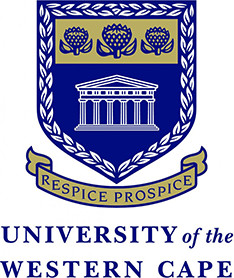CSPRI makes a submission to South Africa's Portfolio Committee on Justice and Correctional Services
This submission deals with South Africa’s performance in relation to, and compliance with, international standards with reference to offender management, offender rehabilitation and independent monitoring. The submission was requested by the Portfolio Committee on Justice and Correctional Services (the Portfolio Committee).
The executive summary of the submission is as follows:
Law and policy
- The Department commissioned independent consultants to conduct a review of the White Paper on Corrections in 2013, but the review has yet to be made available;
- Despite torture having been criminalised in 2013, and despite numerous reports of serious assaults implicating DCS officials, DCS does not list the Prevention and Combatting of Torture of Persons Act as part of its legislative mandate;
- Compliance with international and domestic rules and regulations can only be assessed against clear measurable standards, something that is often missing in DCS strategic plans and annual reports.
Offender management
- Many remand detention facilities face levels of overcrowding that are much higher than national averages. This is the responsibility of the criminal justice system as a whole, which this Portfolio Committee oversees. Making more reliable and regular data on actual overcrowding levels publicly available and making use of legal provisions aimed at alleviating overcrowding would start to address this problem;
- Because of the uneven medical treatment received by prisoners, especially following gross human rights violations committed by warders, medical personnel in prison should be under the employ of the Department of Health, not DCS;
- The standard solitary confinement regime in place at Ebongweni super-maximum prison fails to comply with all relevant legal, constitutional and international standards and values and should be terminated immediately.
Offender rehabilitation
- Current rehabilitation programmes are not based on the actual needs of prisoners and the broader society they are supposed to re-integrate.
- This is in particular the case in relation to access to education, for both adults and children. The latter have a right to access education, whether they are sentenced or unsentenced, until they have reached the age of 15 or attained Grade 9;
- Access to reading material is a constitutional right and not a privilege) for all prisoners.
Independent monitoring
- The Judicial Inspectorate for Correctional Services is not financially and administratively independent from DCS. As a result, it cannot fully exercise its oversight mandate over DCS. The fact that JICS as an institution has probably been captured by DCS has been noted in earlier research. -
- Year after year, JICS reports on an increasing number of assaults committed by DCS officials, some of which result in the death of an inmate. Almost all of these assaults remain unpunished. In a few cases, the official will be disciplined, but sentences are usually very light. In any case, internal disciplinary sanction cannot be seen as adequate punishment for acts of assault, some of which will amount to torture;
- JICS has also repeatedly reported that neither SAPS nor the NPA have taken adequate action to ensure that these officials are criminally prosecuted;
- The current complaints system and broader mandate of JICS is therefore ineffective in ensuring full accountability of DCS members committing gross human rights violations against inmates. CSPRI makes a series of recommendations in this submission to improve individual and institutional accountability of DCS officials and DCS management as a whole, and will be happy to engage with the Portfolio Committee further on this issue.
International obligations
- South Africa must report every four years to the UN Committee against Torture on the measures taken to implement its international obligations under UNCAT. It has not done so since 2006. At the end of 2014, the government hastily drafted a report to the UN Human Rights Committee because it was going to be examined in the absence of a report on the implementation of the International Covenant on Civil and Political Rights in South Africa;
- In 2012, then Deputy Minister Andries Nel publicly committed to ratify the Optional Protocol to the UN Convention against Torture in 2012 still. This has yet to happen.

